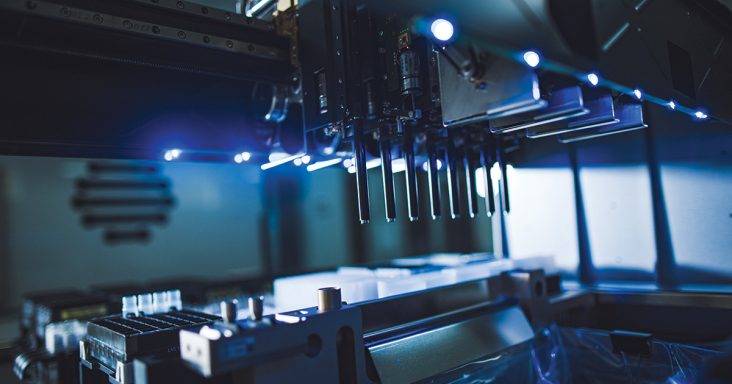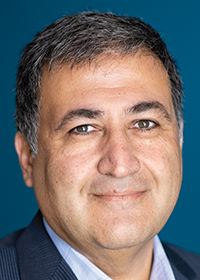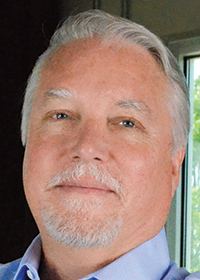Antibodies might provide lasting COVID-19 resistance
by November 16, 2020 12:58 pm 1,860 views

Fayetteville-based Namida Lab uses the StarPlus ELISA System to run its antibody tests.
Whether one has long-term immunity to COVID-19 after recovering from the virus is unclear amid a lack of scientific evidence. Still, antibodies might be the key to develop a vaccine and prevent virus reinfection.
Two Northwest Arkansas companies have developed tests to detect the presence of virus antibodies. Fayetteville-based Namida Lab Inc. has offered antibody, or serology, tests since May. Springdale-based NOWDiagnostics Inc. has developed a 15-minute antibody test approved for clinical use in Europe while awaiting emergency use approval from the U.S. Food and Drug Administration.
According to Mayo Clinic, the immune system develops antibodies due to an infection, and they can be detected in an antibody test within two or three weeks after being infected with COVID and up to several weeks after recovering from the virus. These antibodies are expected to provide immunity, but it’s uncertain how long they last or whether they prevent one from becoming infected again.
Asked about the significance of antibody testing amid uncertainty that antibodies provide virus immunity, Omid Moghadam, founder and CEO of Namida Lab, said, “I do not accept that premise. It [uncertainty about immunity] was formed early on when we did not have a lot of good data. What we had was a lot of confusing and questionable data. The media ran with the worst possible interpretation of every study that had to do with a possibility of reinfection. Also, at some point, the policymakers decided to tip the balance of testing to massive and repeated virus testing versus a dual approach of using a combination of [antibody] and virus [polymerase chain reaction or PCR] testing. Each approach has its upside and downsides.”
Moghadam explained that antibodies provide immunity against other coronaviruses, and this new one is not unlike those. Recent studies support this, he said.
A recent study published in the journal “Immunity” shows people who recover from even mild COVID cases produce antibodies that are expected to protect against infection for at least five to seven months, and possibly much longer. The team of researchers, led by Deepta Bhattacharya, an immunobiologist at the University of Arizona College of Medicine, has tested nearly 30,000 people in Arizona since the research started April 30, according to a recent Healthline article.
However, the article noted the uncertainty of whether people are immune to being infected again because few studies have been completed.

“This would require tracking the re-exposure of a significant number of people and determining if they get sick,” said Lauren Rodda, a senior postdoctoral fellow in immunology at the University of Washington School of Medicine.
Yet, as Moghadam pointed out, convalescence plasma has been used to treat COVID patients and that the vaccines under development generate the same antibodies.
KEY TO VACCINE
Kevin Clark, CEO of NOWDiagnostics, also highlighted the importance of antibodies about a vaccine and its ADEXUSDx COVID-19 test, which uses a blood sample to detect antibodies within 15 minutes.
“If a vaccine is going to work, it’s going to have to build antibodies against the virus,” Clark said. “We spent … a significant amount of energy, making sure we built the best test we could.” He explained that the company developed a test that detects the antibodies that can inhibit the virus from infecting cells.
“We believe that goes right hand-in-hand with, hopefully, immunity in the future as well as how are we going to develop a vaccine and how are we going to know that vaccine is going to work,” he added. “The only way to do that is to look for antibodies.”
Vaccines work because of antibodies, Clark said, noting the vaccine for influenza. This vaccine provides recipients with a killed version of the flu, and the body responds by building antibodies against the flu and offering immunity to it.
“With coronavirus [COVID-19], we don’t know those answers yet,” he said. “It hasn’t been out long enough to be able to be sure of this and have large enough studies to make sure. But if it’s going to work, we’ve got to know about the antibodies.”
NOWDiagnostics has been producing about 125,000 antibody tests monthly and shipping them to South America, South Africa, the Middle East and Europe, said Clark, adding that production has risen weekly. In July, the test received approval for use in clinics and hospitals in 28 countries in the European Union. Since May, the company’s application for Emergency Use Authorization for the same test has been pending with the FDA.
DEVELOPMENT CONTINUES
In August, NOWDiagnostics announced it is working with Biomedical Advanced Research and Development Authority (BARDA), an agency of the U.S. Department of Health and Human Services, to develop the antibody test for use in hospitals and clinics and ultimately at home, allowing for over-the-counter purchase.
Clark said the test is contained in one device and doesn’t need to be sent to a lab for the results.
“It pricks your finger, touch the device to it … it takes less than 40 microliters of capillary blood, you lay it down, and 15 minutes later you get the result,” Clark said. “[In] my 35 years in the diagnostic industry, this platform is the first I’ve seen that is simple enough that anybody can run the test. And we can still provide to them laboratory-quality results in a matter of minutes.”

The tests are produced at the company’s site in Springdale. The injection moldings used for the tests are manufactured in Prairie Grove by PolyTech Plastic Molding & Extrusion. Clinical trials have shown the test has a nearly 100% sensitivity after 14 days from when a PCR test was taken while maintaining a 98.6% specificity, Clark said. Sensitivity refers to a test’s ability to determine if one has a disease, and specificity regards a test’s ability to determine if one does not have a disease. The test also has a 94.9% sensitivity within seven days of a PCR test, he said.
The test is similar to the company’s rapid pregnancy test, except that one detects COVID antibodies and the other detects the hormone human chorionic gonadotropin (HCG). The pregnancy test is one of about 36 products NOWDiagnostics has in the works. It’s also working on a COVID antigen test, which like the PCR test, is used to determine whether one has COVID. The antibody test determines whether one has had COVID. Clinical trials for the antigen test are expected to be underway by mid-November, Clark said.
TO SCALE
NOWDiagnostics recently invested $5 million to purchase equipment for an automated line that can produce up to 2 million antibody tests per month. The equipment is expected to be delivered in December. Clark said the company could scale based on demand, and its 22,000-square-foot facility has room for five automated lines, allowing for the production of 10 million tests monthly. The company can manually produce between 600,000 and 800,000 tests monthly.
NOWDiagnostics has more than 60 employees in Springdale and nearly 20 more employees in California, Toronto and Italy. By the end of the year, the company could have 125 employees in Springdale to handle the manufacturing scale-up.
Moghadam said Namida Lab has 10 employees and looks to hire four more. It started to test healthcare workers and large employers in May after pivoting to antibody testing at the start of the pandemic and pausing the validation studies for its breast cancer screening test, Melody.
“It took us five weeks to go from an oncology-focused lab — of course, five weeks of 12-hour days — to accomplish this,” Moghadam said. “One of the biggest challenges was finding COVID-positive blood. We tried all local hospitals and Arkansas sources like [the University of Arkansas for Medical Sciences] but could not get our hands on any. We ended up running a guerrilla campaign on social media to get COVID-positive blood from front line workers around the country.
“We studied the virus, converted our lab equipment for blood testing, received the needed certifications and validated a test based on the best available antigen,” he said. “During this time, we worked with researchers and front line physicians in [New York, New Jersey] and Italy, and digesting information from research centers from around the world. It was like drinking from a fire hose. We ended up as one of the first labs in the country providing this test in scale.”
It has completed about 1,000 antibody tests. When testing started, positivity rates were about 1% and recently have risen to about 4%. The $99 antibody test is available at Heartland Pharmacy in Fayetteville and can be purchased at www.namidalab.com.
Unlike the antibody test, which is a blood-based test, the breast cancer screening test uses tears. Validation work for Melody is expected to be completed by the end of the year, Moghadam said.
